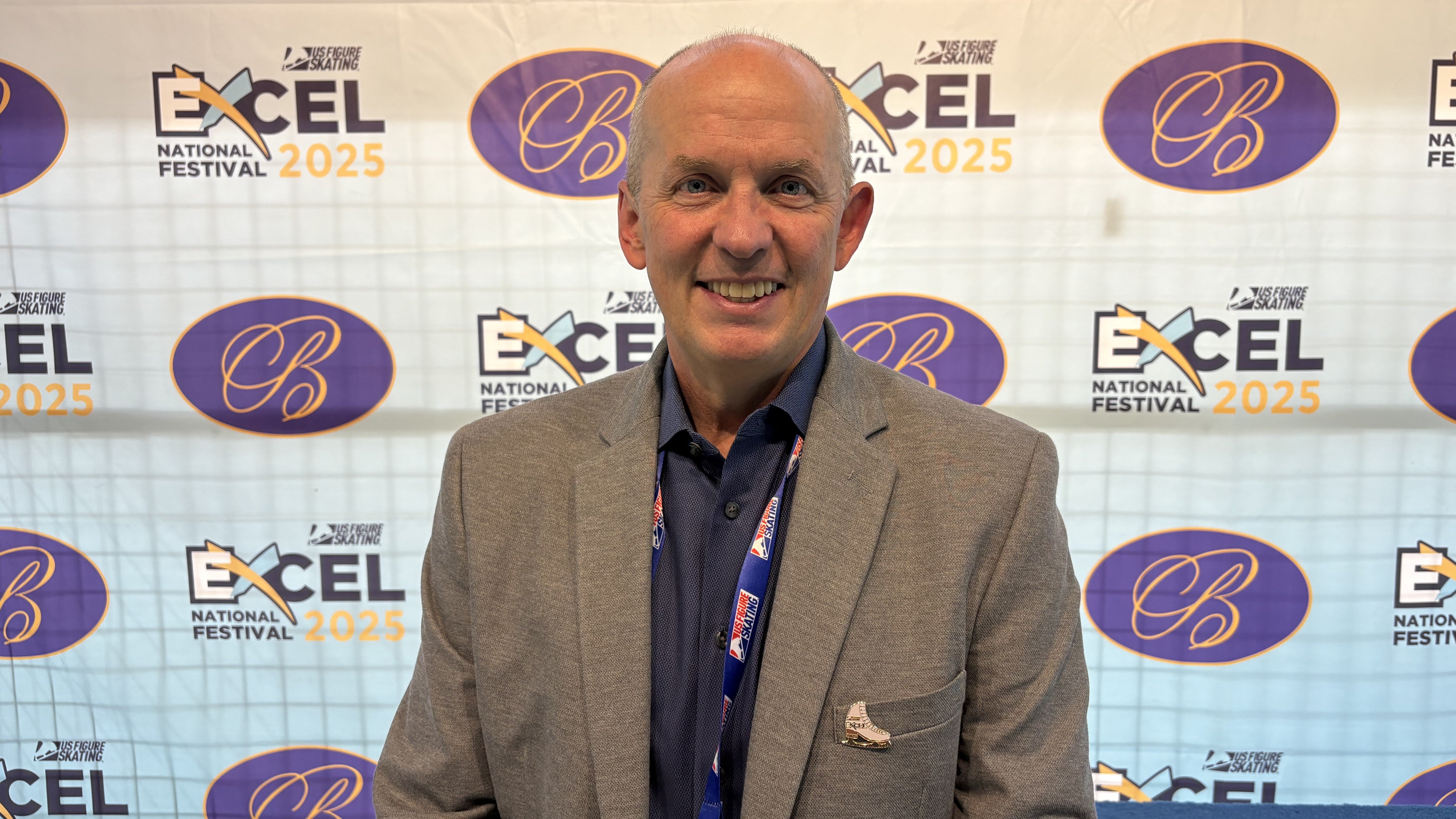Editor’s note:
Matt Farrell joined U.S. Figure Skating on May 19 as its new chief executive officer.
Farrell brings nearly 30 years of experience to the organization, having spent most of his career in top-level positions within the Olympic Movement.
Most notably, Farrell spent more than 13 years as chief marketing officer at USA Swimming, where he led all commercial operations, helping the organization reach the highest sponsor revenue and membership numbers in its history.
Farrell will be responsible for building strategies to enhance programming and membership, generate partnership and philanthropic revenue, and steward relationships across the national and international sporting communities.
Farrell and his wife, 1984 Olympic silver medalist in gymnastics Michelle Dusserre Farrell, reside in Colorado Springs, Colorado; they have two adult daughters, Abby and Zoe.
SKATING magazine sat down with Farrell for an introductory Q&A.
What about U.S. Figure Skating attracted you?
Matt: Its rich history, recent success at the World Championships, strong membership [250,000] and an incredible staff, board and volunteer structure.
How do you see the future?
Matt: The Olympics being nine months away coupled with a domestic Games in nine years provide the perfect opportunity to capture the world’s attention immediately and then use that momentum to build the sport and organization for the future.
What do you hope to bring to the role?
Matt: A blend of perspectives and experiences from a high-performing National Governing Body (USA Swimming), the United States Olympic and Paralympic Committee, a media company (Golf Channel), an entertainment company (Warner Bros.) and even my recent sports consulting and entrepreneurial efforts in baseball tech and entertainment.
What excites you most about NGB life?
Matt: I love the complementing aspects of the organization. A successful NGB is part elite performance, part youth and adult participation, part coach development, part media property, part fundraising organization and more. That is such an attractive mix.
What are a few of the ideals that make the Olympic Movement so special to you and others?
Matt: A lot of sports have fandom, but the Olympic sports have community. There’s a big difference. If you surround yourself with elite athletes and then local members who are investing their time and money in your sport, it provides another level of drive beyond just selling more widgets somewhere. As Billie Jean King said, “Pressure is a privilege.” So, you'd better bring your A game each day to represent those people invested in the sport.
What’s most important in bringing new people into the sport both as participants and fans?
Matt: It’s all about creating a welcoming and inviting experience. People will love skating once they get on the ice; I have zero concerns there. Our job as a sport is to create the culture kids and families want to be part of. That’s the secret sauce.
What were your impressions of the World Championships in Boston?
Matt: I witnessed the U.S. success on the ice, the sellout crowds, the atmosphere, the NBC broadcasts and the genuine engagement of the greatest U.S. skating alums in history. That had me from the moment I walked in. I knew I wanted to be part of it.
How about watching the U.S. Synchronized Skating Championships in Colorado Springs?
Matt: That was a great experience. Funny story … we inadvertently sat in one of the team sections. The seats were open because one of their teams was on the ice. We were then surrounded by so much enthusiasm, positivity and energy. That team environment is a side to figure skating that has unlimited potential.
How many Olympics have you worked in your career?
Matt: Nine — Summer and Winter Games combined.
What are your favorite Olympic Games?
Matt: It would have to be Barcelona 1992, where I met my wife while we were both working the Games for NBC. As far as the Winter Olympics, Nagano 1998 and, of course, Salt Lake City 2002.
What do you like to do in terms of free time and hobbies?
Matt: I love golf, pickleball and TikTok!



